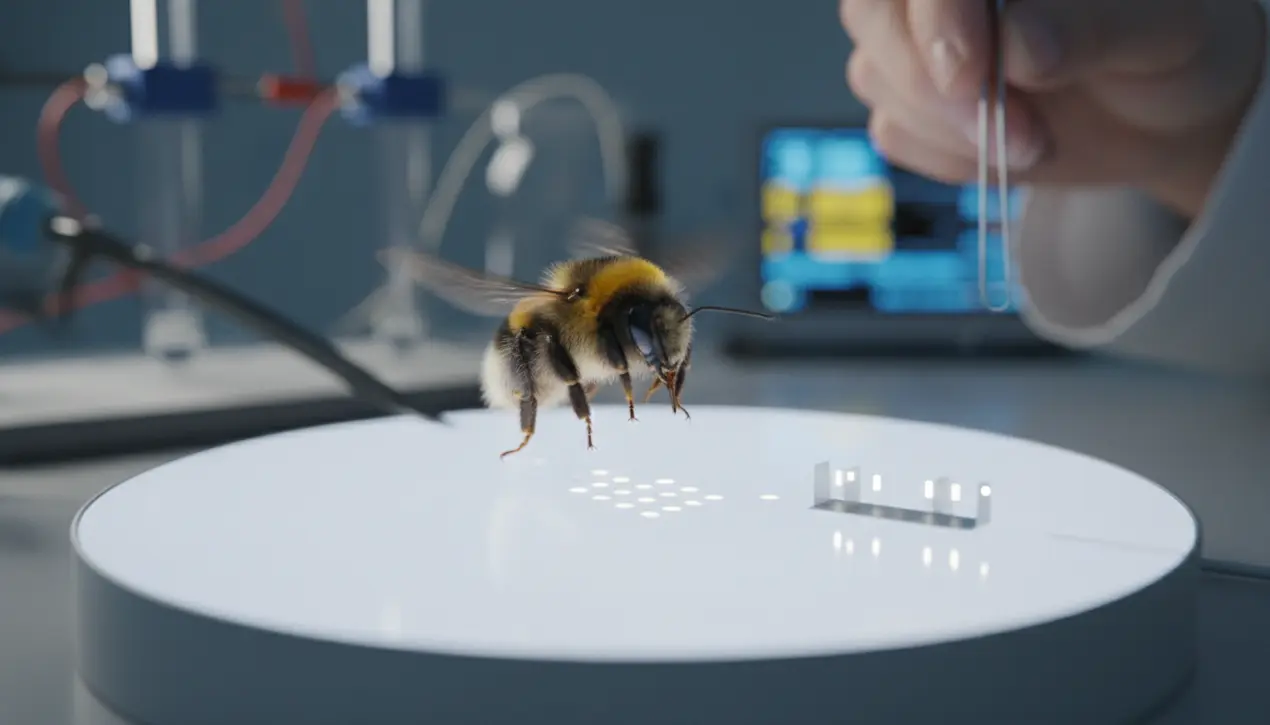
SciencebiologyAnimal Behavior
Bumblebees Trained to Understand Morse Code.
KE
Kevin White
2 hours ago7 min read
In a stunning development that blurs the lines between entomology and computational science, bumblebees have been trained to interpret a form of Morse code, adding another remarkable skill to their growing cognitive resume. At Queen Mary University of London, behavioral scientist Alex Davidson and his team engineered an experiment where bees were exposed to sequences of light flashes—short and long pulses analogous to the dots and dashes of traditional Morse code—to signify specific tasks, such as navigating towards a particular colored target to receive a sucrose reward.This isn't the first time these fuzzy pollinators have demonstrated advanced capabilities; previous research has confirmed they can recognize individual human faces, perform basic counting operations up to four, and retain the olfactory signature of the most rewarding flowers. However, this latest breakthrough, published in a recent issue of *Proceedings of the National Academy of Sciences*, fundamentally challenges our understanding of invertebrate intelligence and opens up provocative new avenues for bio-inspired computing.The methodology was elegantly simple yet profound: bees were placed in a custom-built arena where a sequence of light flashes, say two short bursts followed by a long one, served as a cue to fly to a blue platform, while a different pattern directed them to a yellow one. Through iterative training, the bees not only learned to associate these abstract light-based signals with the correct action but also generalized this learning to novel patterns they hadn't encountered before, demonstrating a capacity for symbolic representation previously thought to be the exclusive domain of vertebrates like primates and dolphins.Dr. Davidson notes that this cognitive flexibility suggests a neural architecture capable of 'cross-modal' learning, where information from one sensory channel (light) is translated into a motor command (flight direction), a cornerstone of complex problem-solving.The implications for the field of artificial intelligence are immense; by reverse-engineering the compact and energy-efficient neural circuits of the bumblebee brain, which contains less than a million neurons compared to the human brain's 86 billion, we could pioneer a new generation of ultra-efficient micro-robots and decentralized swarm intelligence systems. Imagine autonomous drone fleets for precision agriculture or search-and-rescue operations that communicate and coordinate not through bulky digital radios but via simple, robust light-based signals, mimicking the elegant efficiency of a bee colony.This research also dovetails with ongoing work in CRISPR gene-editing and neuroethology, where scientists are mapping the precise gene expression patterns that govern learning and memory in insects, potentially leading to bio-hybrid systems. Of course, this raises profound ethical questions, as outlined by researchers like Dr. Michael Ross, who specialize in AI policy; as we increasingly integrate biological intelligence with engineered systems, where do we draw the line between a tool and a sentient collaborator? The humble bumblebee, often seen as a simple garden visitor, is now at the forefront of a scientific revolution, demonstrating that the building blocks for advanced cognition and communication are far more universal in the animal kingdom than we ever imagined, forcing a complete re-evaluation of what it means to be intelligent.
#bumblebees
#animal intelligence
#morse code
#research
#featured
Stay Informed. Act Smarter.
Get weekly highlights, major headlines, and expert insights — then put your knowledge to work in our live prediction markets.
Related News
Comments
Loading comments...
© 2025 Outpoll Service LTD. All rights reserved.